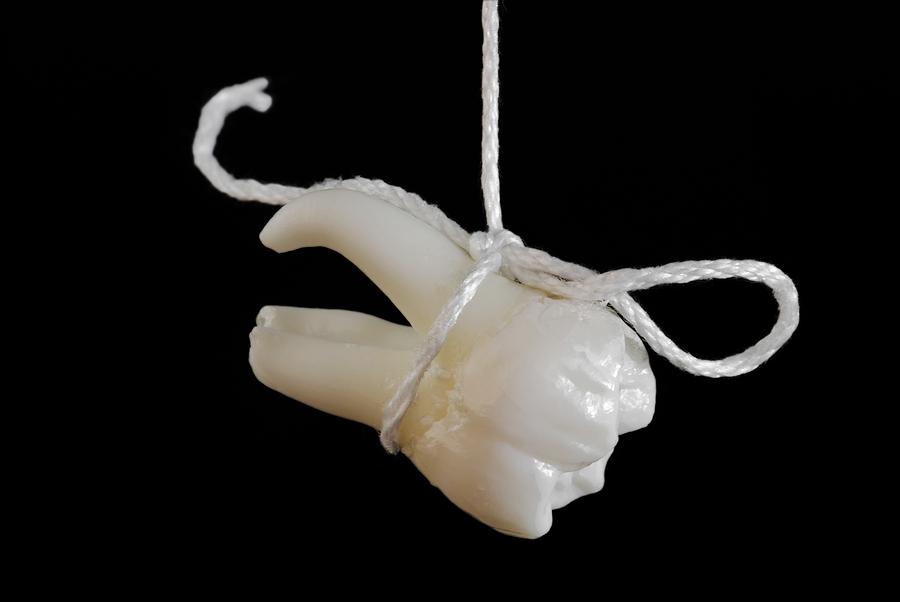The Long-Term Effects of Tooth Extraction on Your Dental Health
Posted by Ugochi Chuks
Dental Procedure
on Aug 5 2024, 03:18 PM
Tooth extraction is a dental procedure in which a tooth is removed from its socket in the jawbone. This procedure is often necessary due to various reasons, including severe tooth decay, advanced periodontal disease, tooth trauma, or overcrowding. It plays a crucial role in maintaining oral health and function; for instance, removing a severely infected tooth can prevent the spread of infection to adjacent teeth and structures. Additionally, tooth extraction can be a preparatory step for other dental treatments, such as orthodontics, dental implants, or prosthetic devices. Proper extraction and subsequent care are vital to prevent complications and to ensure optimal healing and integration of replacement teeth if needed.
When is Tooth Extraction Necessary?
- When decay has damaged the tooth beyond repair, it is non-restorable with fillings or crowns.
- If gum disease has caused significant bone loss around the tooth, compromising its stability.
- When a tooth is infected and cannot be treated effectively withroot canal therapy or other treatments.
- To create space for proper alignment in orthodontic treatment, mainly if teeth are too crowded.
- When a tooth is fractured beyond repair or has severe damage that affects its function.
- If a tooth previously treated with a root canal fails or is re-infected and cannot be salvaged.
The Tooth Extraction Procedure
The tooth extractionprocedure begins with a comprehensive assessment by your dentist. The dentist will review your medical history and perform a thorough examination of the affected tooth and surrounding area. X-rays are often taken to evaluate the tooth's root structure and the surrounding bone, providing critical information for planning the extraction. Based on this assessment, the dentist will determine the best approach and discuss the procedure with you, including the type of anesthesia to be used.
Before the extraction begins, the dentist will administer anesthesia to ensure you remain comfortable and pain-free throughout the procedure. For a straightforward extraction of a fully erupted tooth, a local anesthetic is typically injected into the gum tissue surrounding the tooth, numbing the area. For patients with severe anxiety or for more complex extractions, additional sedation options such as nitrous oxide or intravenous (IV) sedation may be used. These methods help to relax the patient and alleviate anxiety, allowing them to remain calm during the procedure.
Once the area is numb, the dentist will proceed with the extraction. For a simple extraction, the dentist uses specialized instruments to loosen the tooth from its socket and remove it gently. The process involves gripping the tooth with forceps and rocking it back and forth to break the ligaments that hold it in place, then carefully extracting it from the socket. A surgical extraction may be required if the tooth is impacted, meaning it has not fully erupted or is obstructed by surrounding bone or gum tissue. This involves making an incision in the gum tissue to access the tooth, which might need to be sectioned into smaller pieces for easier removal.
After the tooth is removed, the dentist cleans the extraction site, ensuring that all debris is cleared from the socket. If necessary, the dentist places stitches (sutures) to close the gum tissue and aid in healing. Sometimes, a bone graft may be recommended to fill the socket and support future dental work, mainly if the tooth was extracted in preparation for implants or dentures.
Post-procedure, the dentist will provide detailed aftercare instructions to promote proper healing and minimize the risk of complications. These instructions typically include advice on managing pain and swelling, dietary restrictions, and oral hygiene practices. These guidelines are essential to ensure a smooth recovery and avoid issues such as a dry socket or infection. A follow-up appointment may be scheduled to monitor the healing process and address concerns. The tooth extraction is designed to be as efficient and comfortable as possible, prioritizing the patient's well-being and successful recovery. Contact us today to learn more.
The Role of Sedation Dentistry in Tooth Extractions
Sedation dentistry is crucial in making tooth extractions more comfortable and less stressful for patients. For many individuals, the idea of having a tooth extracted can be anxiety-provoking, whether due to fear of pain, the procedure itself, or the discomfort of sitting through the process.Sedation dentistry helps address these concerns by using various levels of sedation to ensure patients remain relaxed and pain-free throughout the procedure.
Several types of sedation are used in dentistry, ranging from mild to deep sedation. Nitrous oxide, also known as laughing gas, is commonly used for minor procedures and helps patients feel calm and relaxed while remaining fully conscious. Oral sedatives are another option, where patients take a prescribed medication before their appointment to reduce anxiety. For more complex or longer procedures, IV sedation may be employed, allowing patients to enter a deeply relaxed state while still being able to respond to verbal cues. In some cases, general anesthesia might be used, which puts patients into a controlled, unconscious state for the duration of the extraction.
By incorporating sedation, dentists can perform tooth extractions more efficiently and with greater ease for patients. Sedation not only alleviates anxiety but also helps manage pain and discomfort, enabling a smoother procedure and faster recovery. This approach is particularly beneficial for patients with dental phobia, those requiring multiple extractions, or individuals undergoing complex surgical extractions. Overall, sedation dentistry enhances the overall experience of tooth extractions, making the process more manageable and less intimidating.
Visit Enviable Smiles at 9451 Cullen Blvd Suite D, Houston, TX 77051 or call (281) 972-4747 to discuss your tooth extraction needs and explore the best treatment options. Our team is dedicated to making your experience as comfortable and effective as possible.
Share On

5 Most Popular Cosmetic Dentistry Treatments
Tooth extraction is a dental procedure in which a tooth is removed from its socket in the jawbone. …

Benefits of Invisalign
Tooth extraction is a dental procedure in which a tooth is removed from its socket in the jawbone. …

Get White, Bright Teeth for The New Year
Tooth extraction is a dental procedure in which a tooth is removed from its socket in the jawbone. …
